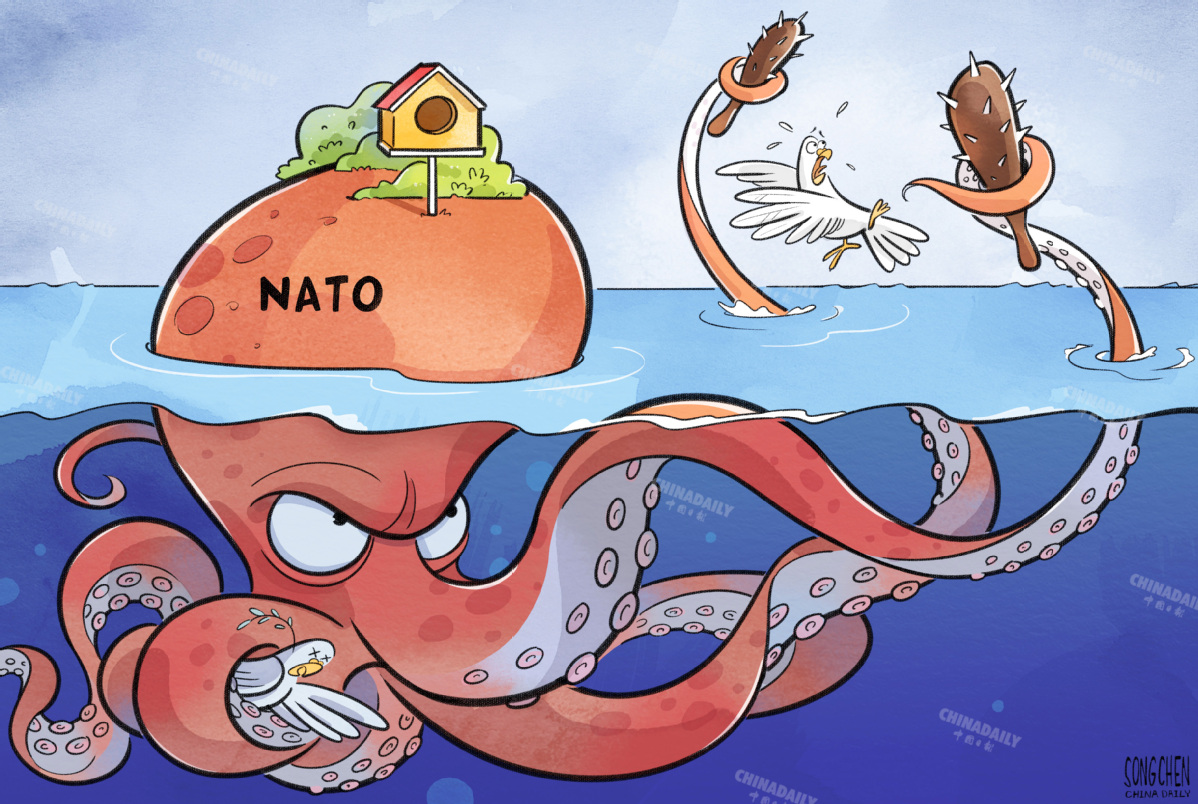
This is an editorial from China Daily.
With the international community in danger of separating along the fault line of drastically different visions of the world order, the geopolitical landscape may become more difficult for Beijing to navigate without timely, efficient strategic communication to mitigate, if not dispel, increasing strategic distrust.
Since the start of Russia's "special military operation" in Ukraine, Beijing has followed a path that is divergent from the United States-led West. But it argues that "promoting peace and talks" is the right and best possible way to de-escalate the crisis.
Unlike the United States and its NATO allies, which have resorted to increasing military support to Ukraine in the hope of bringing Russia to its knees, China has issued persistent calls for restraint and a negotiated end of the conflict, and it has provided humanitarian assistance to mitigate the suffering of civilians.
Beijing has made its decision based entirely on the situation at hand, in accordance with international law, as well as the spirit of the UN Charter.
Thus NATO Secretary-General Jens Stoltenberg identifying peace-brokering Beijing as an emerging threat at the transatlantic security alliance's foreign ministers' meeting last week will certainly have raised eyebrows among those who appreciate Beijing's approach. To them, his remarks are both ridiculous and unjustifiable. But then, he has persistently sought to fan the flames of division.
Stoltenberg's remark would be easily dismissible if NATO were not taking "the rise of China" into account when seeking to reposition itself.
Although it might appear natural for the transatlantic security mechanism to take note of that prominent factor and its global impacts, that was not the thrust of Stoltenberg's comments.
Instead, Stoltenberg was taking China as a threat to the so-called rules-based international order. He said NATO would for the first time write China concerns into its Strategic Concept because China "is actually undermining" the "rules-based order".
In his eyes, Beijing is not only "unwilling to condemn Russia's aggression", but "has joined Moscow in questioning the right of nations to choose their own path", even "trying to bully countries all over the world" with "coercive policies".
Those are serious allegations that will inevitably influence NATO's actions, especially if they are fully incorporated into a collective strategic document. Yet, they show a complete disregard for Beijing's upholding of the rules-based international order, Beijing's long-standing advocating of the right of countries to choose their own development path, Beijing's vision of state-to-state relations, and everything Beijing's "diplomacy of peace" stands for.
The alarming nature of Stoltenberg's words were highlighted by the invitations extended to Asia-Pacific countries to participate in the NATO meeting, as this was an explicit attempt to expand NATO's influence to the region.
Considering that the conflict in Ukraine is an outcome of NATO's constant expansion, and that NATO is a Cold War-era specter seeking to resurrect itself, the Asia-Pacific countries should be wary of NATO's designs for the region.

 中文
中文





